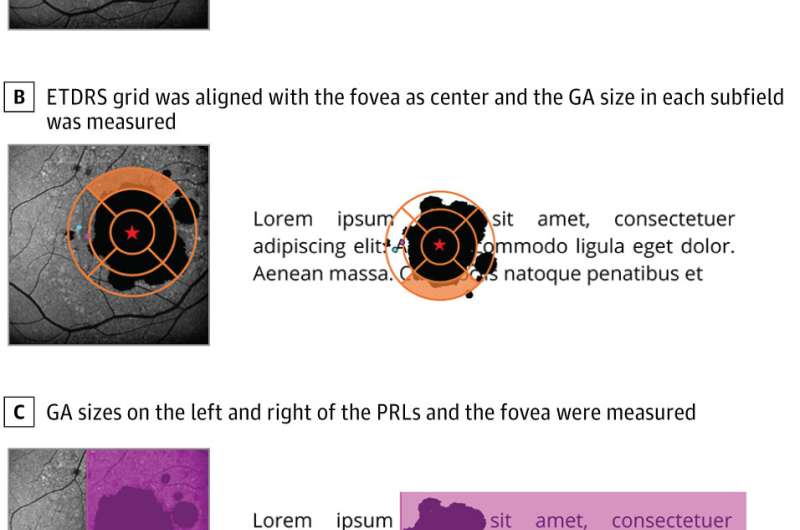Age-related macular degeneration: Reading ability is a crucial indicator of functional loss

In geographic atrophy, a late form of age-related macular degeneration (AMD), reading ability is closely related to the altered retinal structure. This has been demonstrated by researchers from the Department of Ophthalmology at the University Hospital Bonn with colleagues at the National Eye Institute and the University of Utah. Reading speed makes everyday functional impairment measurable, which the most common functional test in ophthalmology—the best-corrected visual acuity assessment—cannot reflect. Retinal imaging can be used to assess loss of reading ability even when central visual acuity is still good. The study has now appeared in JAMA Ophthalmology.
As the proportion of older people grows, the number of patients with geographic atrophy (GA) also increases. This is a late form of age-related macular degeneration. The retinal disease leads to considerable limitations, among other things in reading or recognizing faces. So far it is not treatable. Everyday functional tests are important to assess the success of possible therapeutic approaches. "However, conventional functional tests such as visual acuity do not capture all the dismal functional consequences of the diesease," explains Prof. Dr. Frank G. Holz, Director of the Department of Ophthalmology at the University of Bonn. "Therefore, it is crucial to explore further functional assessments, such as reading performance."
This is where the study initiated by Prof. Monika Fleckenstein comes in, investigating the correlation of reading ability with retinal findings in 85 participants with geographic atrophy. "Especially patients in whom the site of sharpest vision is not yet affected still show good visual acuity in clinical examinations," first author Sandrine Künzel reports from clinical practice at the University Eye Hospital in Bonn. "Nevertheless, they sometimes report severe limitations in their daily life, which also encompass reduced reading ability."
This finding has now been confirmed by the study. Both reading ability and reading speed proved to be important functional tests for clinical therapy studies. In contrast, the suspected phenomenon of "binocular inhibition"—a negative influence of the worse-seeing eye during reading—did not show up. Thus, future therapeutic approaches should focus primarily on the better-seeing eye to achieve an overall improvement in visual ability. "We were able to contribute to the understanding of reading ability and its role as a study endpoint," said Priv.-Doz. Dr. Maximilian Pfau of the University Eye Hospital in Bonn, who is currently a fellow of the German Research Foundation (DFG) at the National Eye Institute in Bethesda (U.S.).
More information: Sandrine H. Künzel et al, Association of Reading Performance in Geographic Atrophy Secondary to Age-Related Macular Degeneration With Visual Function and Structural Biomarkers, JAMA Ophthalmology (2021). DOI: 10.1001/jamaophthalmol.2021.3826





















